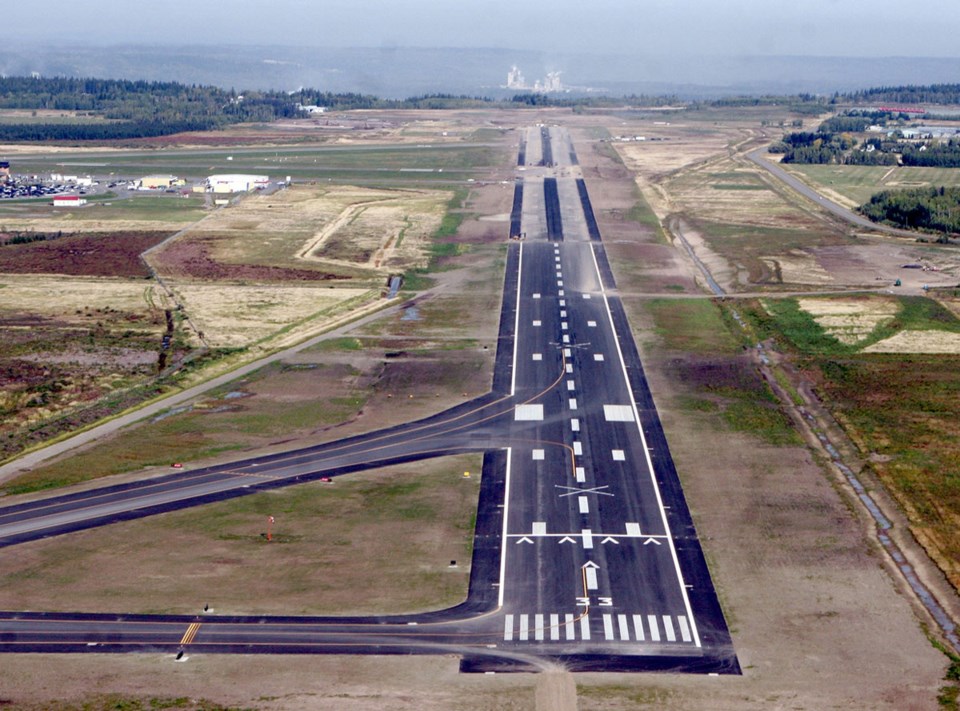Home to the fourth-longest commercial airfield runway in Canada, Prince George Airport is facing a hefty bill to have that runway repaved.
The 3,474 metre (11,400 foot) runway is nearing the end of its lifespan and within the next five years will have to be dug up and replaced.
“That piece of infrastructure, we’ve kept a really close eye on it and have monitored it closely but that was built in 2009 and in this environment of severe cold and freeze-thaw cycles the expected life span would be around 15 to 20 years,” said Prince George Airport Authority CEO Gordon Duke. “We’re going to get at least that much, but you can only defer that so long.”
Crack sealing and pavement repairs have been ongoing for years to keep the runway safe but Duke says the inevitable runway overlay can’t be put off indefinitely. Early estimates put the cost to remove and replace the concrete-asphalt runway at around $21 million.
With its ability to serve wide-bodied jets and commercial freight aircraft, the expanded Prince George runway was touted as the catalyst that would make the city a fuel stop for Pacific air freight traffic, capable of handling 15,000 flights annually.
Prince George’s location at the crossroads of two major highways, at the halfway point between the eastern United States and Asia, combined with the city’s ability to handle freight at the CN Rail intermodal facility was supposed to create demand for the longer airstrip, which has so far failed to materialize. However, Duke is convinced regularly scheduled freight landings and takeoffs in Prince George will come eventually.
‘We’re very fortunate that we have all the infrastructure and all the pieces in place for that business to start happening and it will be small steps at first,” said Duke. “But I do believe that because we’re not Vancouver - the complexity and cost of operating in those larger areas can become overwhelming – and operators are going to be looking for other opportunities.”



